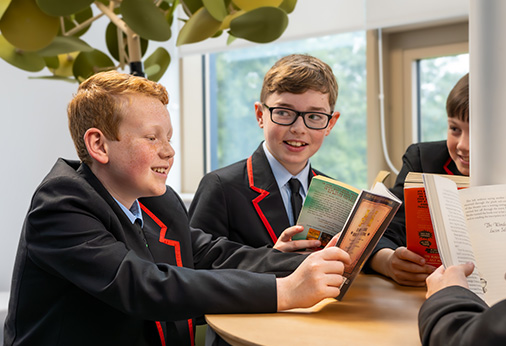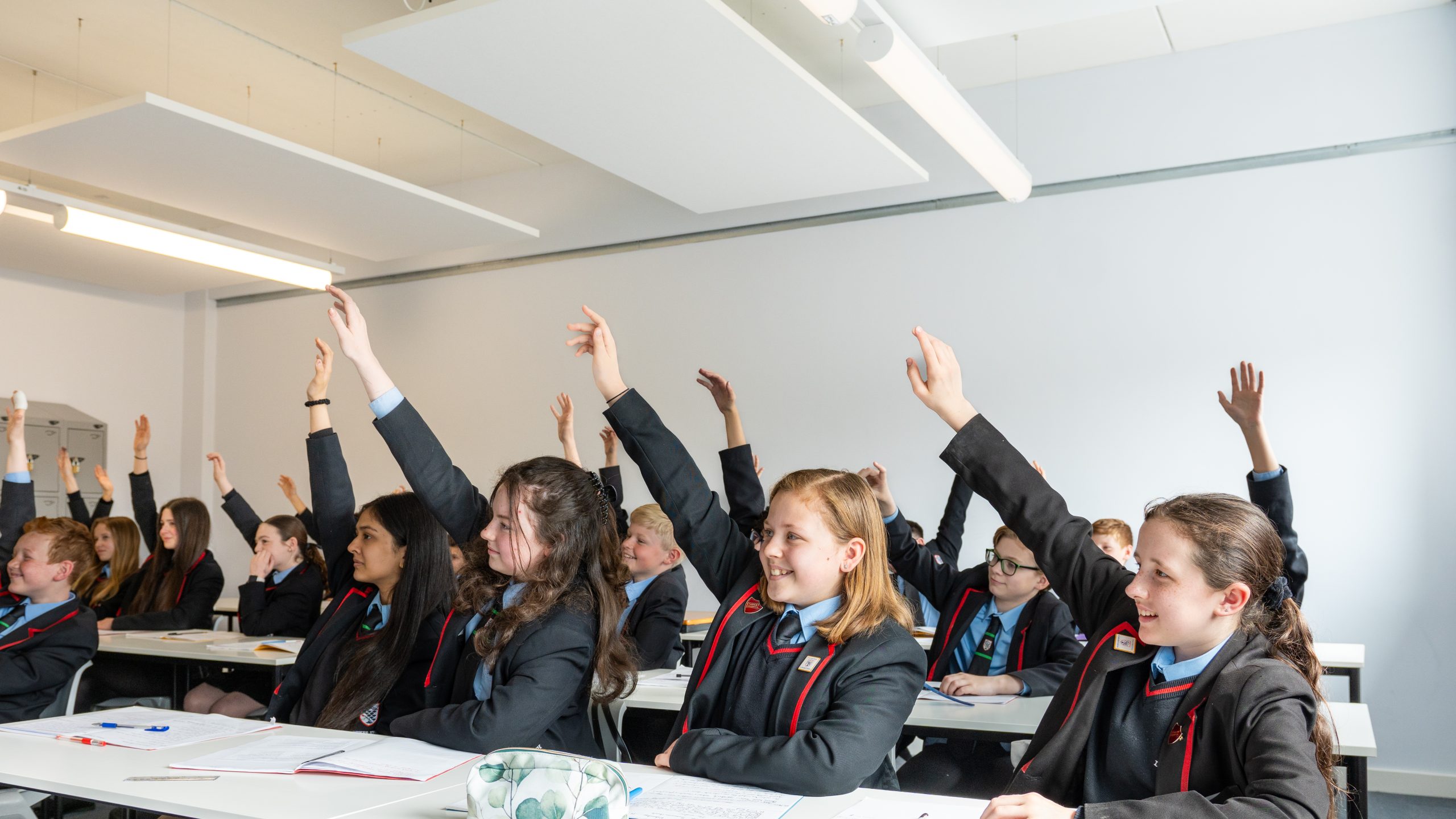English
“Language is the light of the mind” John Stuart Mill
Vision
At Deyes High School we are unapologetically ambitious and unashamedly academic with our curriculum to ensure all students can interpret the world around them through literature and unlock meaning through language.
The English curriculum provides our students with powerful knowledge and access to cultural capital through well-considered texts across the canon and beyond, including seminal world literature; students are exposed to a diverse range of contextual backgrounds and significant historical events.
We believe curriculum should be created to enable a 'conversation between pupils and the real world, facilitated by teachers.'
We believe texts should be both mirrors and windows, ensuring children feel represented and seen, whilst empowering them to grasp opportunities and enjoy the best that has been thought and said in our rich cultural heritage.
Our curriculum offer is never narrowed; all students access the same ambitious texts, irrespective of starting points. Everything we do is deliberate and not left to chance, so we have developed a 'spiral curriculum' where core knowledge is carefully mapped to ensure it is regularly revised and returned to so that students can apply them in new contexts and thus deepen and refine their understanding. This will also allow them to progress into further English study with a core foundation of knowledge and connections throughout literature. The English curriculum is coherently planned and sequenced to ensure our students can be assessed on the cumulative growth of skills; this allows students to build on successes, supported by a constantly evolving and challenging skillset.
We build on the foundational grammar instruction students receive in Key Stage 2 with our Writing mastery curriculum. We believe explicit instruction of grammar, sentence construction and application of these skills need to be purposefully taught, repeated and practised regularly. Our Writing Mastery curriculum is progressive and built for retention of skills through repeated exposure. The curriculum also empowers students to engage with language, in all its transactional forms, to enable students to become active, eloquent and effective citizens.
We acknowledge our English curriculum is one major part of the bigger picture of our whole-school curriculum and go to great lengths to encourage students to forge tangible links with other subjects in each module we teach. Our intention is to encourage students to appreciate the transferability of subject-specific knowledge and skills.


Curriculum Intent
Access to all subjects is underpinned by good grounding in Literacy, so it is right that all students study English. This will promote students to read, write and speak fluently with good understanding and using a wide vocabulary.
We teach English is three strands at Key Stage Three, Writing Mastery to build on Key Stage Two explicit instruction of grammar and sentence construction, Literary Heritage to study British heritage and seminal world literature and finally our Reading for Pleasure strand to promote and foster a love of reading with an emphasis on fluency and pace of reading.
To develop wide reading for pleasure and information through rich and varied texts from the literary heritage which include a broad range of text genres, styles and narrative structures, and types of non-fiction texts.
Students will be able to work independently and develop an autonomous approach to the subject through adaptation and personalised learning.
Students will develop their transcription and composition writing skills, so they are clear, accurate and coherent.
Students will develop their knowledge of language, which includes linguistic knowledge like vocabulary and grammar, as well as knowledge of the world for comprehension which will underpin their progression in spoken language, reading and writing.
Students will competently develop the art of speaking and listening through formal presentations, debates and discussions. Students will learn how to use 'exploratory talk' and 'presentational talk' to present their ideas.
In Key Stage 3, 4 and 5, students will read a wide range of fiction, non-fiction, poetry and plays which become increasingly complex in style and increasingly substantial in content and themes to develop a genuine love of literature.
Students will develop their epistemic knowledge through their study of four key areas which include the history and development of literature, the craft of the writer, the response of the reader and the nature of literary study.
Through the study of these varied texts in our curriculum, students will explore language, our literary heritage, society, relationships, social interactions, culture, beliefs and traditions which will fundamentally contribute to their success in social groups and society, accessing Higher Education and success in work or a career.
Through the study of these texts, students will accumulate knowledge, behaviours and skills which will demonstrate their cultural awareness, knowledge and competence.
Curriculum Implementation
Click here for more information about KS3 and 4 curriculum implementation.
Click here for more information about KS5 curriculum implementation.
Curriculum at a Glance
Click here to see an overview of the KS3 and 4 English curriculum
Click here to see an overview of the KS5 curriculum
Accreditations
English Language GCSE – GCSE English Language | Eduqas
English Literature GCSE – GCSE English Literature | Eduqas
AQA English Literature B Paper 1 Tragedy Paper 2 (option B) Social and political protest – English Literature B AS and A-level Specification

